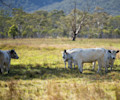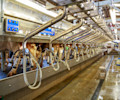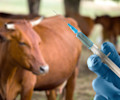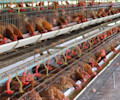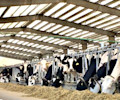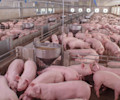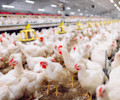The global human cost of the coronavirus pandemic has been substantial. Officially, there have been 5.9 million deaths, though some argue that the number could be closer to 19 million. The financial toll is also much higher than was predicted, with the global cost now totalling over $16 trillion. Meanwhile, supply chain shocks caused by staff shortages and COVID-19 outbreaks at meat processing plants have made headline news, and this uncertainty is causing growing concern amongst the public, investors, and policymakers worldwide.
Our recent policy paper on emerging disease risk, which looks at 60 of the world’s largest protein producers, highlights that too little is being done to acknowledge and mitigate operational risks. Of the companies assessed, 63% are ranked as “High Risk”, indicating a critical lack of disclosure about high-risk practices, such as deforestation and pollution, which could contribute to the emergence of new zoonotic diseases. The figure below shows that companies perform particularly poorly against deforestation and pollution risk factors, with 98% of companies ranked as “High Risk” for Waste & Pollution and 75% for Deforestation & Biodiversity. The findings also show no region with an average score of “Low Risk” or “Best Practice”, indicating that there is significant work to be done to improve the performance of companies globally.
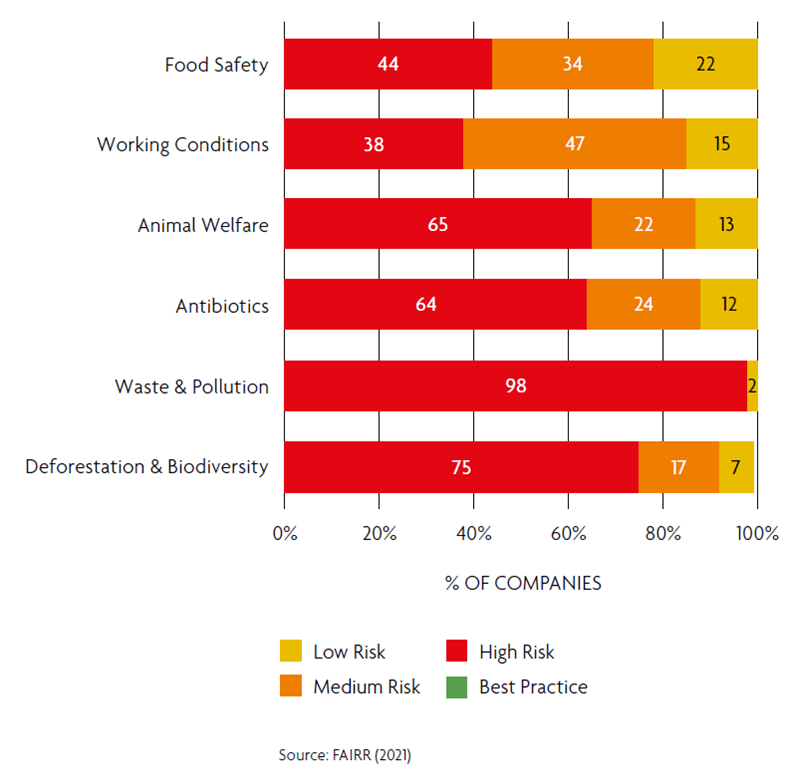
Natural habitat loss and deforestation, for example, increase the chance of contact between wildlife and humans, enabling the animal-human transfer of disease. It also raises the level of stress experienced by wildlife, thus driving pathogen-shed and excretion, and ultimately, facilitating the spread of diseases from animal to human.
Companies hold the keys to change
Not only is the animal protein industry at risk of triggering new diseases through practices like deforestation and land conversion, but it can also play a key role in the spread of these diseases. Due to the poor working conditions at meat processing plants, many have become epicentres of the COVID-19 pandemic. This has impacted the entire protein supply chain and had destructive consequences for businesses globally.
As a result of staff shortages and reduced processing capacities, many protein producers and farmers have resorted to practices like milk dumping: disposing of large quantities of milk before turning it into consumer products. In the US, $350 million has now been allocated to dairy producers to reimburse them for the material losses incurred from this practice. The pattern of disruption has been repeated globally, with significant material losses for businesses and investors. Reduced capacity at slaughterhouses has also led to an animal surplus, with large numbers having to be culled. These practices underscore the industry’s fragility and vulnerability to external shocks, which come at a high cost.
Food production at the heart of the transformation
The United Nations has identified seven human-mediated factors most likely to facilitate the emergence of new zoonotic diseases, with five of these being directly or indirectly attributed to food production. The increasing demand for animal protein is listed as one of these factors and this demonstrates why diversification into alternative proteins is a risk mitigation strategy.
Taking this step could have a positive impact by reducing human reliance on animal protein and reducing associated risks. Fortunately, we are seeing a positive trajectory in the number of companies investing in sustainable proteins, with 46% now increasing their exposure to sustainable plant-based protein sources, up from 25% in 2020.
A global approach is needed for long-lasting, effective solutions
Our food systems represent a complex web of stakeholders and tend to have fragmented commodity supply chains. The United Nations Environment Programme (UNEP) and the International Livestock Research Institute (ILRI) consider “de-risking food systems’ a top priority to prevent pandemics. Although seen as “black swan” events (i.e., events that happen very rarely), pandemics are a widely predicted consequence of how current food systems operate, both from food sourcing to the trading of animals and the subsequent environmental impact.
After all, agricultural expansion drives nearly 90% of deforestation globally, and this is closely linked to high demand for commodities like beef, palm oil and soy. Global commitments at COP26, such as the pledge from over 100 global leaders to halt and reverse deforestation by 2030, or the promise to end supply chain deforestation by 10 global commodity producers, are a first step towards addressing these risks.
There is also a growing focus on pursuing a “One Health” solution—an approach that recognises the close connection between human health, animal health and our shared environment. This is important for investors who are concerned about the material risks associated with emerging diseases. It is positive to see a recent landmark decision by countries at the World Health Assembly to launch a process for developing a new global accord on “pandemic prevention and response” – while Germany’s G7 Presidency programme also references the G7 commitment to pandemic prevention.
The UK, the EU and the US are considering and developing human rights and environmental due diligence legislation, which could play a key role in supply chain risk mitigation. To understand and address the risk of new emerging diseases from the agriculture sector, full disclosure of where and how companies operate is crucial. Global mandatory disclosure of key risks, such as climate risks, deforestation and biodiversity loss, in accordance with the TCFD framework (as agreed by the G7 in 2021) and the TNFD, can help identify supply chain hotspots and improve the ability to prevent and tackle multiple ESG risks. Like the G7, Switzerland and New Zealand have also introduced mandatory TCFD disclosure while China and the EU have indicated intent to make climate reporting mandatory.
A global approach to pandemic risk in our food system is needed to ensure that we can meet the UN Sustainable Development Goals. Pursuing a “One Health” approach, mandating the use of frameworks like TCFD and TNFD, and implementing policies and regulations at a global level will be essential to achieving this transformation. We need a collaborative and global approach because the world cannot afford another devastating pandemic like COVID-19.
FAIRR insights are written by FAIRR team members and occasionally co-authored with guest contributors. The authors write in their individual capacity and do not necessarily represent the FAIRR view.
Written by


